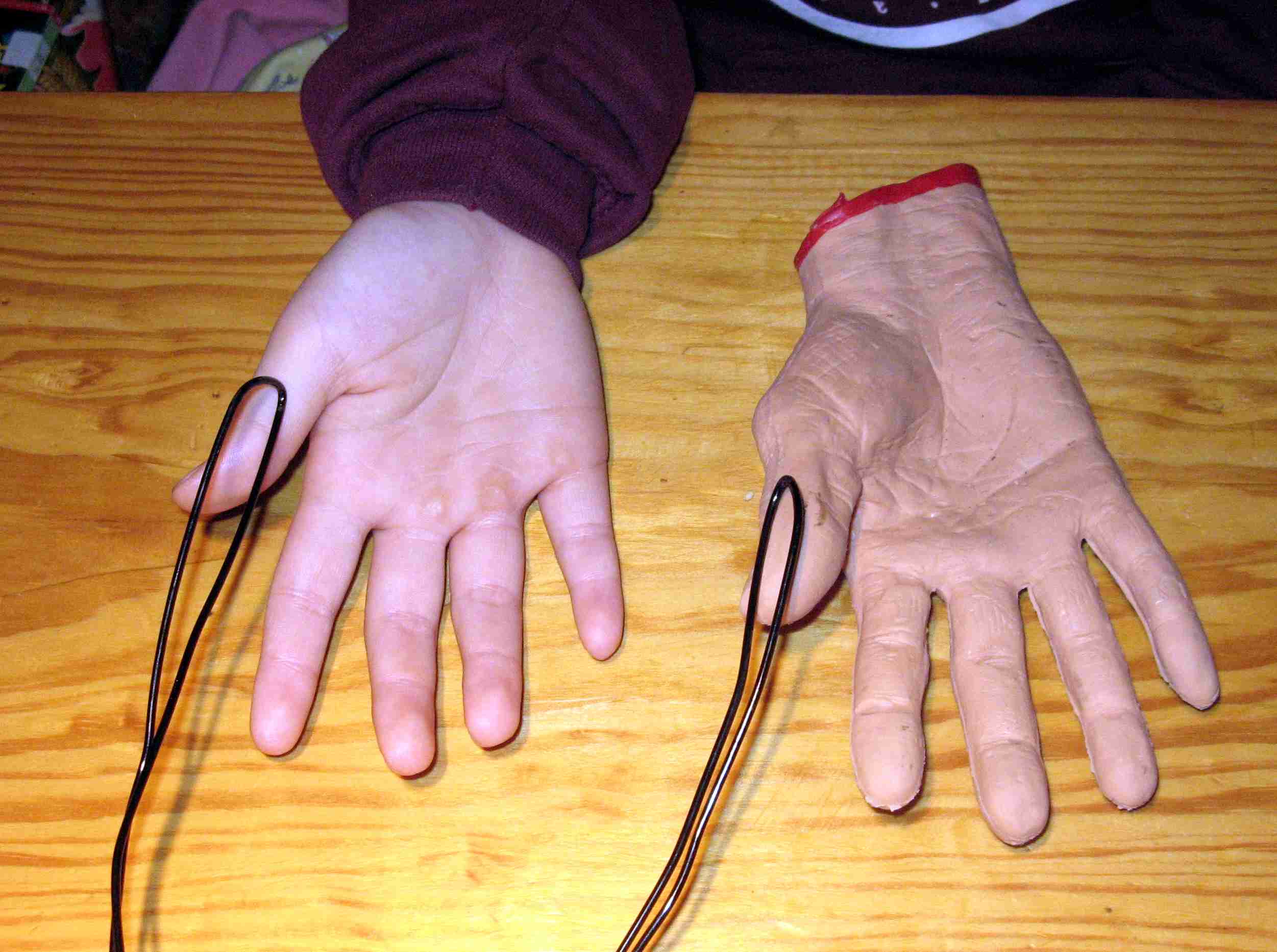Intrigued by my review of numerous articles on neural plasticity, I concocted a simple experiment that had dramatic results. I set out to see whether I could cause people to have the illusion that a cheap rubber hand could “become” their own hand. Over the past few years, I’ve run this experiment on about a half-dozen people, just out of curiosity. Most of my “subjects” found that the experience was “creepy,” in that it appeared that the rubber hand “became” their own hand. It’s an do-it-yourself artificially-induced out-of-body experience.
Here’s how I ran my experiment. Step one is to buy a rubber hand, the creepy kind often used in gags.

Here’s one place where you can buy a fake hand. Alternatively, here’s a site that teaches you how to make your own rubber hand. You’ll also need to bend a coat hanger into a “Y” shape.

Finally, you’ll need a simple barrier, such as a large book. That’s all the equipment you’ll need. Here’s how you run the experiment.
Put the rubber hand side-by-side with the person’s same-side real hand.

You’ll be using the “Y” shaped coat hanger to touch precisely the same part of the rubber hand and the subject’s hand simultaneously. Move the hanger around and tap on or stroke a wide variety of corresponding parts of the two hands.

While you tap on the same portions of each hand, the subject should only be looking at the rubber hand–that’s why you’ll need some sort of barrier. …





